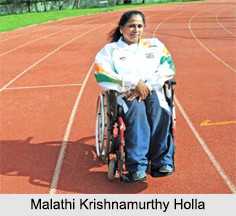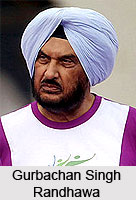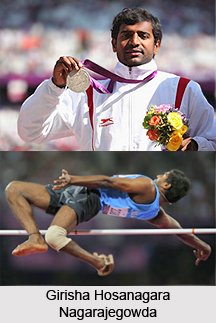(1) A judge is advised to fixate in between the two boxers; and not to develop a tendency to study or follow just one of the boxers
(2) Never rely on past performance, reputations or titles earned by a particular boxer.
(3) Amateur boxing is scored on a point system, not on a round basis.
(4) The winner is decided on the majority of judges, i.e., 5-0, 4- 1 or 3-2.
(5) Amateur boxing is scored on a legal scoring blow system not on a round basis.
(6) Decisions.
(A) Types of decisions:
(1) Win on points: At the end of a contest the boxer who has been awarded the decision by a majority of the judges shall be declared the winner.
(a) If both boxers are injured or down simultaneously and cannot continue the contest, the judges shall record the points gained by each boxer up to its termination, and the boxer who was leading on points up to the actual end of the contest shall be declared the winner.
(b) AIDS Stoppage Rule: If both boxers are bleeding or where one boxer is bleeding and the opponent has an open cut or abrasion, the referee may stop the bout and take the boxers to the doctor to be examined.
If the bout is stopped the boxer ahead on points shall be the winner.
(2) Win by retirement: If a boxer retires voluntarily owing to injury or other causes, or if a boxer fails to resume boxing immediately after the rest between rounds, the opponent shall be declared the winner. If a boxer retires during the rest between rounds, the referee will immediately notify the jury and the judges of the retirement and the other boxer is declared the winner.
(3) Win by Referee Stopping Contest (RSC).
(a) Outclassed: RSC is a term used to stop a bout when a boxer is outclassed or unfit to continue. (1) If a boxer, in the opinion of the referee, is being outclassed or is receiving unnecessary and excessive blows, the bout shall be stopped and the opponent declared the winner
Outscored-RSC-OS is only used with the Computer Scoring System and stops a bout when a boxer is outscored as follows:
(1) If one boxer has a 20-point advantage (for Open and Under19/Junior men), or a 15-point advantage (for Women and Junior Olympics/Cadets) over their opponent, the bout must be stopped except in the last round, and the boxer with the advantage is declared the winner,
(C) Injury
(1) If a boxer, in the opinion of the referee, is unfit to continue because of injury or other physical reasons, the bout shall be stopped and the opponent declared the winner. The right to make this decision rests with the referee, who may consult the doctor. Having consulted the doctor, the referee must follow the doctor`s advice.
(2) When a referee calls a doctor into the ring to examine a boxer only these two officials should be present. Coaches should not be allowed into the ring or on the apron.
(3) The ringside physician has the right to request the bout be suspended if the physician thinks, for medical reasons, the bout should not be allowed to continue.
D) Compulsory Count Limits: When a male boxer has three compulsory counts in the same round or four counts during the same bout, the match must be stopped. When a female boxer has two compulsory counts in the same round or three counts during the same bout, the match must be stopped. A count issued for a foul is not included in this number.
RSC (H): If a boxer is down due to head blows, and fails to box within eight to 10 seconds, whichever is applicable, the opponent shall be declared the winner by RSC (H).
Win by disqualification: If a boxer is disqualified, the opponent shall be declared the winner. A boxer is automatically disqualified for not making weight or for committing three warnings in a bout. If both boxers are disqualified, the decision shall be announced accordingly. A disqualified boxer is eliminated from the tournament and shall not be entitled to any prize, medal, trophy, honourable award or grading, relating to any stage of the competition in which the boxer has been disqualified
No contest: A bout may be terminated by the referee inside the scheduled distance owing to a material happening outside the responsibility of the boxers, or the control of the referee such as the ring becoming damaged, the failure of the lighting supply, exceptional weather conditions, etc. In such circumstances the bout shall be declared "no contest" and in the case of championships, the jury shall decide the necessary further action.
Win by walkover: Where the boxer presents themselves in the ring fully attired for boxing and the opponent fails to appear after the opponent`s name has been called out by the public address system, the bell sounded and a maximum period of two minutes has elapsed, the referee shall declare the first boxer to be the winner by a walkover



















